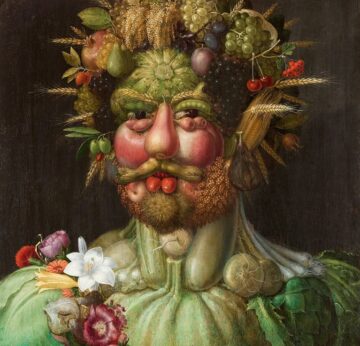Lizzie Collingham in Nature:
 In seventeenth-century England, people often commented after a meal: “We ourselves have had ourselves upon our trenchers”. This is an early version of today’s well-worn aphorism, ‘you are what you eat’. In Eating and Being, historian Steven Shapin explores this idea and how philosophies of food have shaped the Western sense of self. His central idea is encapsulated in the book’s last lines: “In the past, knowledge about what we eat belonged to knowledge about who we are. It still does.”
In seventeenth-century England, people often commented after a meal: “We ourselves have had ourselves upon our trenchers”. This is an early version of today’s well-worn aphorism, ‘you are what you eat’. In Eating and Being, historian Steven Shapin explores this idea and how philosophies of food have shaped the Western sense of self. His central idea is encapsulated in the book’s last lines: “In the past, knowledge about what we eat belonged to knowledge about who we are. It still does.”
The opening chapters recount how ancient Greek Hippocratic ideas about food and medicine laid the foundations for the Western understanding of food and identity. This philosophy of dietetics proved remarkably tenacious, providing the basis for medical thinking into the eighteenth century. Dietetics gave an account of how food formed not only the substance of the body, but also the psyche. A person’s temperament was determined by the balance of the four bodily humours: blood, phlegm and black and yellow bile. The balance of these fluids in individuals determined their personality types — phlegmatic, sanguinary, melancholic and choleric. It also provided a set of principles to live by. An ideal state could be achieved by following a regimen of moderation in all areas of life: habitat, exercise, sleep, bodily excretions, the emotions and, especially, food and drink.
More here.
Enjoying the content on 3QD? Help keep us going by donating now.
